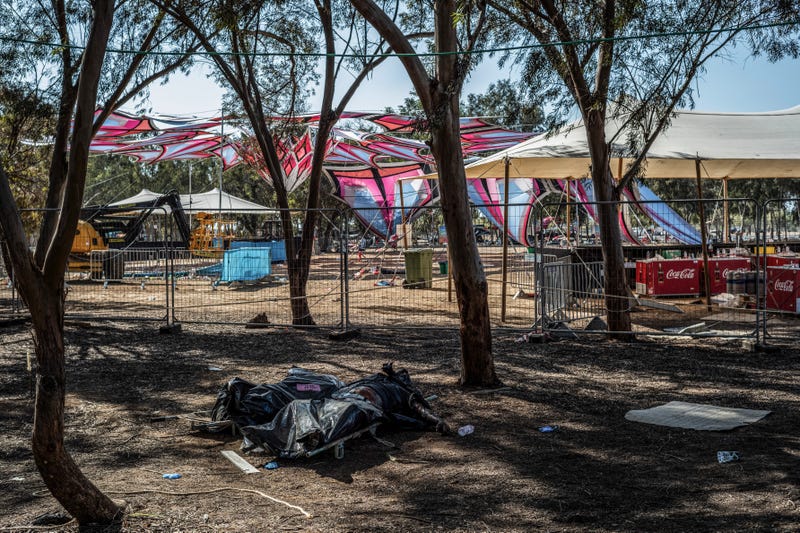
PHILADELPHIA (KYW Newsradio) — A documentary about the massacre on Oct. 7, 2023, at the Supernova music festival in Israel was screened at a few locations across the city Thursday evening. A faculty member who helped host a screening on the University of Pennsylvania campus said she hopes the film can contribute to a better understanding of the perspectives behind the Israel-Hamas conflict.
“Supernova: The Music Festival Massacre” details the horrors of the bloody terrorist attack on a peaceful music festival in Israel’s Negev Desert. It was just one of more than 20 locations infiltrated by Hamas terrorists on Oct. 7.
“This was a hard film to see,” said one attendee.
“I'm gutted,” said another.
Claire Finkelstein with the Penn Center for Ethics and the Rule of Law helped bring the movie to campus.
“One of the reasons that the Center for Ethics and the Rule of Law has undertaken to study this, apart from the fact that it’s an armed conflict, is that I think that using the tools of law can help lower the temperature on very contentious issues,” Finkelstein said.
Attendee Kara Bernstein said the movie clearly depicted the terror that thousands of unarmed Supernova partygoers felt when they were attacked — “the firsthand account of hearing people talk about their experiences, with the actual footage, both from the terrorists as well as from people who survived.”
While Finkelstein said she would like to build a better understanding of the Israel-Hamas war’s perspectives, she acknowledged the audience was not diverse. Most predominantly in attendance were Penn faculty members, most of them Jewish.
She said the screening was widely advertised and open to the public, “but there is a self-selection factor.”
In answer to that, emergency medicine professor Ben Abella said: “I would welcome anyone who goes to a pro-Palestine rally to watch this movie and open their mind a little bit about what they're supporting.”
Finklestein said that doesn’t mean a person can’t hold two truths at once. Through events like this screening, she said she would like to see students build resilience and develop empathy.
“There is no shortage of empathy to go around. It’s not as though if you feel empathetic on one side, you’re unable to feel that empathy on the other,” she said.
“Any one of the young people on campus who goes to parties, who likes to dance, could have been any one of those young people [at the Supernova festival on Oct. 7] — just as we should understand that any of us could be people in Gaza.”
Abella said watching survivors relive the terror of Oct. 7 was reminiscent of speaking engagements with Holocaust survivors. “And here we are, again — requiring survivors to go through and share the experience, because people are not acknowledging it.”
Following the screening was a panel discussion, which included festival survivor Millet Ben Haim.
Asked what he wants people to understand about surviving the massacre, he said, “First of all, the fact that it happened — and the scale that it happened. But more than that, I think, people are failing to understand that even though it’s over and now we are a few months ahead of that, it doesn’t leave you.”
